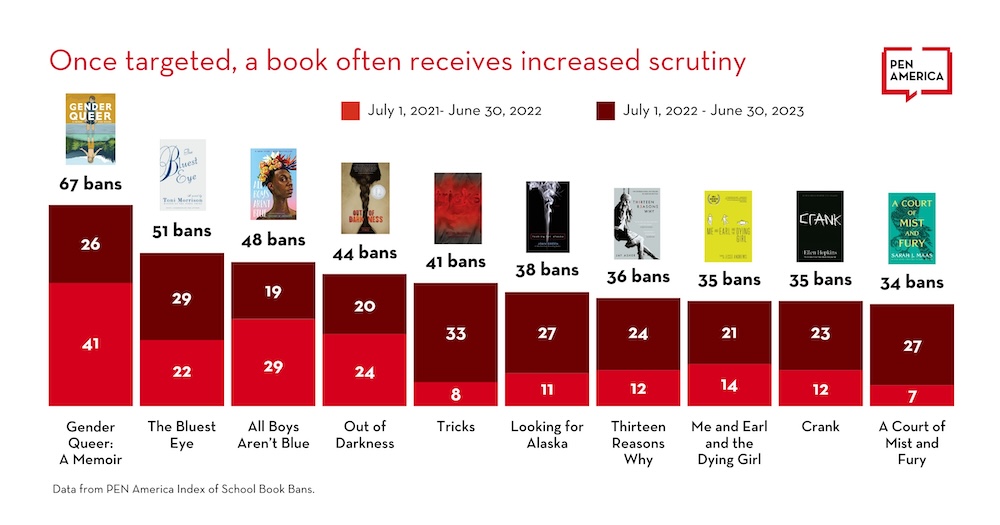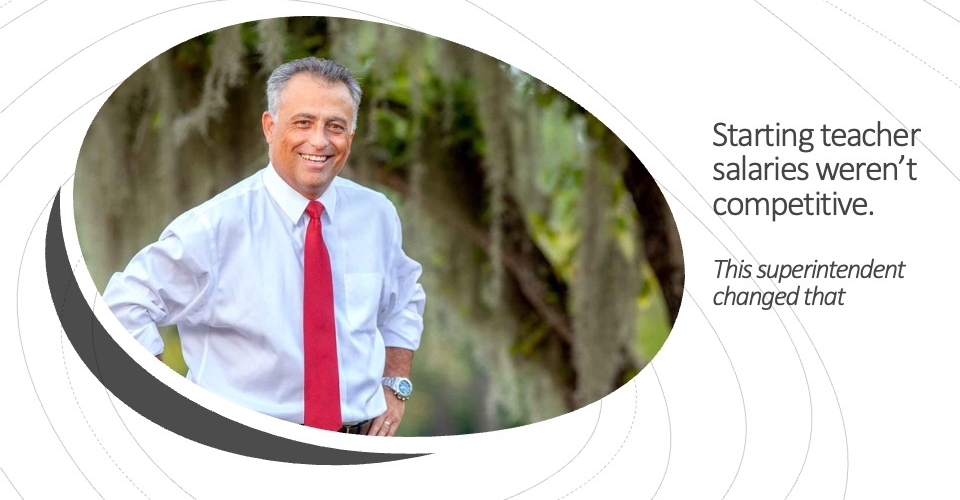A deep dive into K12 book ban campaigns over the last two years reveals a “Scarlet Letter” effect, a leading anti-censorship organization asserts. That means authors remain regular targets of copycat bans after just one of their titles is removed from a library’s shelves, according to the new “Spineless Shelves” report from PEN America.
Young adult fantasy author Sarah J. Maas’ books were banned 18 times across 10 districts during the 2021-2022 school year. In 2022-23, those figures surged to 158 bans across 36 districts—a 778% increase. That’s evidence that groups pushing for book bans are sharing lists of titles to target across district boundaries and state lines, “which has inflamed this copycat effect,” PEN America says.
“Book banners have effectively marked a group of authors with a ‘scarlet letter,’ which has intensified the pace and scope of book banning in schools,” said Kasey Meehan, director of PEN America’s Freedom to Read program. “We have long raised alarm over book bans undermining the freedom to read for students and families, but we are similarly concerned about the effects on authors, and the freedom to write.”
PEN America has tracked 5,894 instances of book bans across 41 states and 247 districts from July 2021 to June 2023. There has been “a sustained focus” on removing YA books about people of color, LGBTQ+ individuals and other historically marginalized identities. Books that focus on violence and racism are also frequent targets of bans.
“Without literary works, students are left without context for their own experiences, without empathy for the experiences of others, and without a full understanding of the world we live in and the past,” said Sabrina Baêta, of PEN America’s Freedom to Read program. “We are continually alarmed to see how the movement to ban books has intensified since 2021 and puts at risk the freedoms to read and learn, all the while threatening core principles of education.”

Florida and Texas continue to lead the country in the number of book bans, which, the organization adds, are becoming more comprehensive and potentially more permanent as they encompass libraries and classrooms.
Who gets a scarlet letter?
Authors such as Ellen Hopkins, Jodi Picoult, Alice Oseman, Laurie Halse Anderson and Rupi Kaur are among the other writers whose catalogs became wider targets after one of their works was banned.
More from DA: More students are now being arrested when violent threats disrupt schools
Gender Queer, a graphic memoir written and illustrated by Maia Kobabe, may well be the most banned school book in the nation, having been removed from shelves so many times over the last two years that it is becoming a less frequent target.
On the other hand, Hopkins’ Tricks, a YA novel written in verse that’s centered on teen sexual activity and drug use, is an increasingly popular target of book ban campaigns. So is John Green’s Looking for Alaska, which touches on relationships between youths and adults.
Tricks was targeted just eight times in 2021-22 but was banned 33 times last school year. Crank, another book by Hopkins, was banned 23 times in 2022-23 compared to just 12 times the year before. Similarly, efforts to remove Looking for Alaska jumped from 11 to 27 during those school years.









